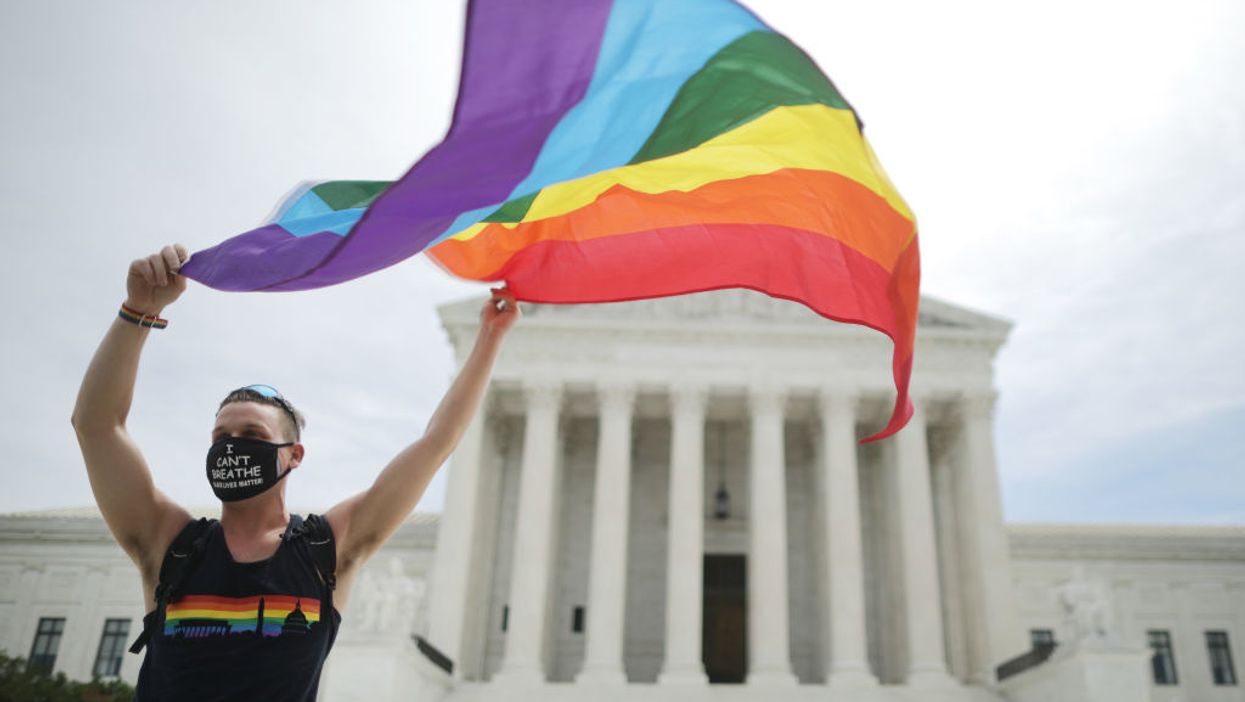
Photo by Chip Somodevilla/Getty Images

Big news
In a historic decision Monday, the Supreme Court ruled that Title VII of the Civil Rights Act of 1964 extends protection to gay and transgender workers from discrimination based on sexual orientation and gender identity.
The court handed down a surprising 6-3 decision in the case, Bostock v. Clayton County, with Chief Justice John Roberts and Justice Neil Gorsuch joining the liberal side of the court in the majority decision.
Gorsuch, who wrote the majority opinion, argued that "in Title VII, Congress adopted broad language making it illegal for an employer to rely on an employee's sex when deciding to fire that employee. We do not hesitate to recognize today a necessary consequence of that legislative choice: An employer who fires an individual merely for being gay or transgender defies the law."
Gorsuch added that while the drafters of the landmark civil rights law likely did not anticipate the law's many consequences over the years, "the limits of the drafters' imagination supply no reason to ignore the law's demands."
In the dissenting opinion, Justice Samuel Alito wrote: "Many will applaud today's decision because they agree on policy grounds with the Court's updating of Title VII. But the question in these cases is not whether discrimination because of sexual orientation or gender identity should be outlawed. The question is whether Congress did that in 1964. It indisputably did not."
The major dispute: Title VII of the Civil Rights Act of 1964 expressly prohibits employment discrimination on grounds of "race, color, religion, sex, [and] national origin." The key question was whether that law, as written, pertains to sexual orientation or gender identity.
Both Alito and Justice Brett Kavanaugh argued that the law, as written, does not include those terms and cited the fact that Congress has repeatedly introduced legislation since the law's passage to add the terms to the list.
Kavanaugh specifically made note in his dissent that Congress has yet to successfully pass legislation prohibiting employment discrimination based on sexual orientation and that it is not right for the Court to circumvent the legislative process.
"In the face of the unsuccessful legislative efforts (so far) to prohibit sexual orientation discrimination, judges may not rewrite the law simply because of their own policy views," Kavanaugh wrote. "Judges may not update the law merely because they think that Congress does not have the votes or the fortitude. Judges may not predictively amend the law just because they believe that Congress is likely to do it soon anyway."
"If judges could rewrite laws based on their own policy views," Kavanaugh argues, "the Constitution's separation of powers would collapse," threatening the very nature of the rule of law and of individual liberty.
The court's decision had been highly anticipated since the case marked the first time the Court had taken up gay rights since the retirement of Justice Anthony Kennedy in 2018. Kennedy had been the key swing vote on social issues and wrote the majority opinions in all four of the court's major rulings on gay rights.
Undoubtedly, many eyes were fixed on how President Trump's two nominees, Gorsuch and Kavanaugh, would rule. They were appointed by President Donald Trump in 2017 and 2018, respectively.
Alito also warned in his dissent that the court's ruling could lead to unintended consequences such as the use of bathrooms based on one's gender identity, perhaps leading to "serious psychological harm" to women who have survived sexual assault.
Three cases, argued in October 2019, were included under the primary caption, Bostock v. Clayton County. The cases involved a former Georgia child welfare services coordinator named Gerald Bostock who said he was fired for being gay, a funeral home director named Aimee Stephens who said she was fired after telling her employer she was transgender, and a skydiving instructor named Donald Zarda who was fired after coming out as gay.
Stephens and Zarda both passed away before the court's decision.
Supreme Court makes historic ruling on LGBT employment discriminationyoutu.be